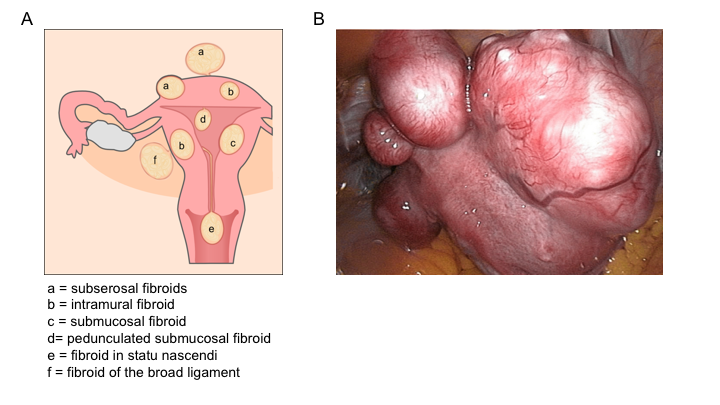Title: Understanding Uterine Cysts: Signs, Symptoms, Causes, Risk Factors, Diagnosis, Prevention, Diet, Lifestyle, and Homoeopathic Treatment
Introduction:
Uterine cysts, also known as uterine fibroids or uterine myomas, are non-cancerous growths that develop in the uterus. They can vary in size and location and may cause symptoms that affect a woman's reproductive health and overall well-being. In this blog post, we will delve into the signs and symptoms, causes, risk factors, diagnosis methods, prevention strategies, diet and lifestyle considerations, and the potential role of homoeopathic treatment in managing uterine cysts.
Signs and Symptoms of Uterine Cysts:
1. Heavy or prolonged menstrual periods.
2. Pelvic pain or pressure.
3. Enlarged abdomen or bloating.
4. Frequent urination.
5. Pain during sexual intercourse.
6. Backache or leg pain.
7. Difficulty conceiving or recurrent miscarriages (in some cases).
Common Causes of Uterine Cysts:
1. Hormonal imbalances: An overproduction of estrogen and progesterone can contribute to the development of uterine cysts.
2. Genetic factors: Family history of uterine cysts or related conditions.
3. Hormonal changes during pregnancy: Uterine cysts may grow or develop during pregnancy due to hormonal fluctuations.
4. Obesity: Excess body weight can increase the risk of developing uterine cysts.
Risk Factors for Uterine Cysts:
1. Age: Uterine cysts are more common in women of reproductive age, especially in their 30s and 40s.
2. Family history: Having a close relative with uterine cysts or related conditions increases the risk.
3. Hormonal factors: Hormonal imbalances or disorders, such as polycystic ovary syndrome (PCOS), can contribute to the development of uterine cysts.
4. Obesity: Being overweight or obese increases the risk of developing uterine cysts.
5. Race and ethnicity: Uterine cysts are more common in African-American women.
Diagnosis of Uterine Cysts:
1. Pelvic examination: A healthcare provider may feel the presence of uterine cysts during a pelvic exam.
2. Ultrasound: Imaging tests, such as transvaginal ultrasound or pelvic MRI, can provide detailed images of the uterus and help confirm the presence and characteristics of uterine cysts.
3. Hysteroscopy: A thin, lighted tube is inserted through the vagina and cervix to examine the uterus and take tissue samples (biopsy) if necessary.
Prevention Strategies, Diet, and Lifestyle Considerations:
1. Maintain a healthy weight: Engage in regular physical activity and follow a balanced diet to manage weight and hormonal balance.
2. Manage stress: Practice stress reduction techniques such as meditation, yoga, or deep breathing exercises.
3. Avoid exposure to synthetic hormones: Minimize the use of hormonal contraceptives or hormone replacement therapies unless necessary.
4. Limit alcohol consumption: Excessive alcohol intake can disrupt hormone levels and contribute to the growth of uterine cysts.
Diet and Lifestyle Considerations:
1. Eat a nutrient-rich diet: Include fruits, vegetables, whole grains, lean proteins, and healthy fats in your diet to support overall health.
2. Fiber-rich foods: Consume high-fiber foods to support healthy digestion and hormone balance.
3. Stay hydrated: Drink an adequate amount of water to maintain proper hydration and support overall wellness.
4. Limit caffeine and processed foods: These substances may exacerbate symptoms and disrupt hormonal balance.
Homoeopathic Treatment for Uterine Cysts:
Homoeopathic treatment for uterine cysts aims to address the underlying hormonal imbalances, reduce the size of cysts, and alleviate associated symptoms. Some commonly used homoeopathic remedies for uterine cysts include:
1. Thuja occidentalis: Indicated for uterine cysts with heavy menstrual bleeding and associated hormonal imbalances.
2. Sabina: Recommended for uterine cysts accompanied by profuse menstrual bleeding and pain.
3. Calcarea carbonica: Useful for uterine cysts in women who have a tendency towards obesity and hormonal disturbances.
It is important to consult a qualified homoeopathic practitioner for an accurate diagnosis and individualized treatment plan based on your specific symptoms and overall health.
Conclusion:
Uterine cysts can impact a woman's reproductive health and overall well-being. By understanding the signs, symptoms, causes, risk factors, diagnosis methods, prevention strategies, and considering homoeopathic treatment as a complementary approach, individuals can effectively manage uterine cysts. Remember to consult healthcare professionals for an accurate diagnosis and to create a comprehensive treatment plan tailored to your specific needs.

Leave a Message